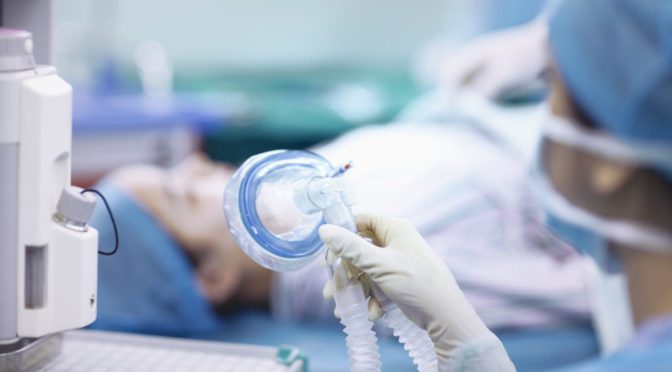“You will be asleep for your surgery,” anesthesiologists often reassure their patients. Just before the start of anesthesia, a patient may hear the operating room nurse saying, “Think of a nice dream as you go off to sleep.”
While these statements are intended to soothe patients during a stressful time, they gloss over this critical fact: Anesthesia is not like normal sleep at all.
That’s why you need medical doctors – anesthesiologists – to take care of you under anesthesia, and why you don’t need us when you’re sleeping comfortably in your own bed.
Differences between natural sleep and general anesthesia
Natural sleep represents an active though resting brain state. Every 90 minutes, the brain cycles between rapid eye movement or “REM” sleep and non-REM sleep. During each of these REM cycles, the brain is active, and dreams can take place. The rest and rejuvenation that result from getting a good night’s sleep are essential for overall health and wellbeing.
On the other hand, general anesthesia produces a brain wave pattern known as “burst-suppression,” where brief clusters of fast waves alternate with periods of minimal activity. In a recent article published in Frontiers in Psychology, Drs. Akshay Shanker and Emery Brown explain brain wave patterns found in patients under general anesthesia. They are similar to those of critically ill patients who fall into a coma, have a dangerously low body temperature, or suffer from other serious diseases. Under general anesthesia, patients do not dream.
Confusing general anesthesia and natural sleep seems innocent but can be dangerous. A person who falls into natural sleep doesn’t require constant monitoring or observation. A patient under anesthesia, like an intensive care unit patient in a coma, may appear peaceful and relaxed, but anesthetic drugs don’t produce natural sleep and may cause breathing to stop or have other serious side effects. Some may recall that Michael Jackson died at home while receiving the anesthetic drug propofol in his veins without an anesthesiologist nearby to protect him.
For patients with chronic health problems, having surgery and anesthesia can put significant stress on the body. Anesthesia gases and medications can temporarily decrease the heart’s pumping ability and affect blood flow to the liver and kidneys. Patients under general anesthesia often need a breathing tube and a ventilator to breathe for them and support their lungs with oxygen.
Respect anesthesia, but don’t fear it
While having anesthesia and surgery should never be taken lightly, anesthesia care today is very safe as long as it is directed by a physician specializing in anesthesiology: an anesthesiologist. Anesthesiology is a medical specialty just like cardiology, surgery, or pediatrics. Research by anesthesiologists has led to the development of better monitors, better training using simulation methods inspired by the aviation industry, and new medications and techniques to give safer pain relief.
As a medical specialty, anesthesiology focuses on improving patient safety, outcomes and experiences. Anesthesiologists work with surgeons and other healthcare professionals to get you or your family member ready for surgery, designing an anesthesia care and pain management plan specific to the type of operation you need. The anesthesia plan will guide your care during your procedure and throughout your recovery. While general anesthesia is far different from natural sleep, the job of the anesthesiologist is to make sure that you wake up just the same.
This post has also been featured on KevinMD.com.
